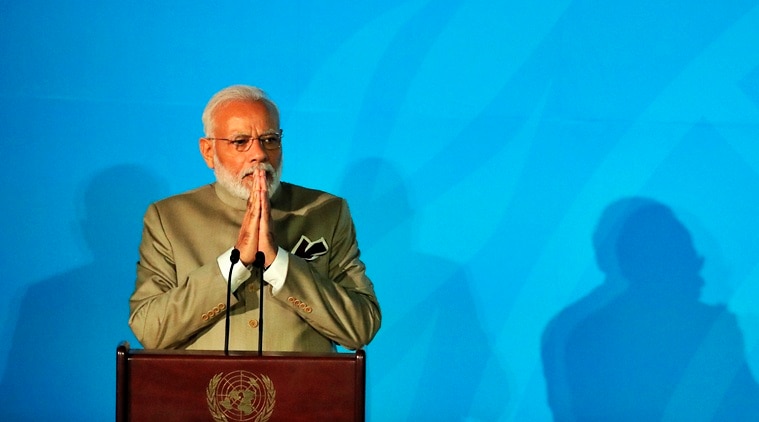
Prime Minister Narendra Modi on Monday said that India has taken “historic steps” including the world’s largest health insurance scheme – Ayushman Bharat – to provide access to affordable health care services to all and banning of e-cigarettes. Besides, greater awareness through Clean India campaign and immunization campaigns have also contributed to health promotion..
Addressing the first ever high-level meeting on Universal Health Coverage here, Modi said, “World welfare begins with people’s welfare, and health is an important component of it. And in line with this global principle, India is laying great emphasis on health.”
He said that health does not simply mean freedom from diseases. “A healthy life is every person’s right”. The onus for ensuring this is on governments, he said.
He said that India has taken a holistic approach towards this subject and is working on four main pillars of healthcare: Preventive Healthcare, Affordable Healthcare, Improvements on the supply side and Implementation in mission mode.
He said that special emphasis on Yoga, Ayurveda and Fitness and building more than 125,000 wellness centers have helped to promote preventive healthcare, helping in controlling life style diseases such as diabetes, blood pressure, depression.
To ensure affordable healthcare, he said that India has rolled out the world’s largest health insurance scheme- Ayushman Bharat. Under this scheme, 500 million poor have been given the facility of free treatment worth up to 500,000 rupees annually (more than USD$7000). There are more than 5000 Special Pharmacies, where more than 800 varieties of vital medicines are available at affordable prices
In 2015 Heads of States and Governments made a bold commitment to achieve universal health coverage by 2030, including financial risk protection, access to quality essential health-care services and access to safe, effective, quality and affordable essential medicines and vaccines for all.
Monday’s meeting was held under the theme “Universal Health Coverage: Moving Together to Build a Healthier World,” which aims to accelerate progress toward universal health coverage (UHC).
The meeting aims at mobilizing the global community to secure political commitment from Heads of State and Government to accelerate progress toward achieving universal health coverage by 2030.
He also mentioned several historic steps taken by India to ensure quality medical education and medical infrastructure development.
Among mission mode interventions in health sector, the National Nutrition Mission to improve nutritional status of mother and child and India’s commitment to eliminate Tuberculosis by 2025 five years ahead of the global goal 2030 and the a campaign against diseases that spread due to air pollution and through animals, are importance.
India’s efforts are not limited to its boundaries. India has helped to provide access to affordable health care including by way of tele-medicine to several other countries, especially African countries .
“Other than with introducing new vaccines, we have been successful in reaching far-flung areas with our vaccination programmes,” he said.
“Access to not just a disease-free life, but to a healthy life is the right of all people, and for this the onus is on the government and social institutions to prepare and provide necessary services. Under this responsibility, by way of Ayurveda, Yoga and telemedicine, India is increasing access to affordable healthcare to many countries, especially to African countries,” he said.
The Prime Minister ended his address with a Sanskrit proverb ‘Sarve Bhavantu Sukhin, Sarv Santu Nirmaya’ that translates into “wishing all happiness, wishing all a disease-free life.”